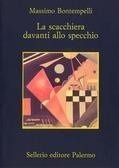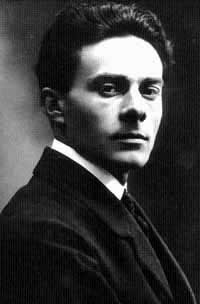
"This whimsical Italian fantasy, originally published in 1922, belongs on the shelf next to The Little Prince and Alice and Wonderland. Simple language by translator Gilson gives the novel a poetic tone, while STO's charming black-and-white illustrations add humor."—VOYA Alone in a room with nothing but an old mirror and a chess set, a young boy anticipates a boring afternoon. But like Alice just before she fell down the rabbit hole—and wound up in Wonderland—this boy is about to embark on a marvelous adventure. Gazing at the mirror, he discovers that the chess pieces (the reflections, not the real ones) are alive! When the White King invites him into the world on the other side, the excitement begins. There, all the rules of the real world are reversed. There, you can have a perfectly reasonable conversation with a perfectly unreasonable chess piece. There, you can meet anyone who's ever looked into the mirror (even a hundred years ago). This bewildering experience leads to some odd questions: What goes on inside a mirror when no one is looking at it? What if the reflected world is more real than the one where we live? And speaking of our world, how will our hero get back to this side of the mirror? Join him on his fantastic journey where nothing is more absurd than reason or more important than freedom of imagination. "[A] story told in a voice that's charmingly direct, sweetly self-referential…and more than a little trippy…Like all good books for children, it also has unusual insights into childhood itself: '…when you're ten years old, standing or sitting are exactly the same.'"—Philadelphia Inquirer "The narrator's dry wit, reminiscent of P. G. Wodehouse, makes for an appealing journey and, coupled with the whimsical pen-and-ink drawings, a charming package with a timeless air."—Publishers Weekly "Motherhood is the theme of these two intimate novellas by Italian writer Bontempelli, who preceded such better-known authors of 'magic realism' as Jorge Luis Borges and Alejo Carpentier by more than two decades in his fusion of the miraculous and the matter-of-fact…The elegantly restrained passion of these two tales, penned in Bontempelli's delicate prose, proves yet again the writer's literary genius."—Publishers Weekly (review of Separations) "Separations is a complete triumph. Bontempelli's work prefigured the magic realism popularized by many Latin American writers, andSeparations is an excellent example of this style. Elegant, superbly crafted, and masterfully written, these tales are not easily forgotten; the heroines are haunting and the plots finely honed. Bontempelli is truly a 'fantastic' writer."—Library Journal (review of Separations) A protégé of Pirandello, Massimo Bontempelli (1878–1960) was a prolific writer of poetry, plays, and prose fiction. Bontempelli now occupies a major place in 20th century Italian letters, and his works are translated in every major European language. Sergio Tofano, also known as STO, was an Italian illustrator, actor, director, and playwright. For fifty years his illustrated work appeared in the children's supplement of Corriere della Sera, one of the oldest and most widely read newspapers in Italy. Estelle Gilson's translation of Umberto Saba's Stories and Recollections won both the Italo Calvino and PEN Renato Poggioli awards, and the MLA's first Aldo and Jeanne Scaglione award in 1994 as the best literary translation of the previous two years. Her fiction, essays, and articles appear in many publications. She translated Bontempelli's Separations.
Author

Massimo Bontempelli was an Italian novelist, short story and theater writer, literary and art theorist and critic. Best known for coining the literary term Magical Realism and creating its theoretical framework. His efforts to implement this specific poetics in his writings begin after his initial experiments, first with traditional poetry (Carduccian classicism), then humorist, ironic stories (influenced by Pirandello) and short escapades in surrealism and futurism. Despite forming a literary model for Magic Realism with his own novels and short stories, Bontempelli's importance as a Magic Realist writer is mainly neglected and overthrown in contemporary theories on Magic Realism. Only few authors (mostly Italian authors but A. C. Hegerfeldt, A. B. Chanady, I. Guenther as well) acknowledge Bontempelli's significant role for the development of Magic Realism, but unfortunately, not all of them manage to go further then Franz Roh's and Alejo Carpentier's theories in the debate over the origin and literary use of the term. Bontempelli graduated from the University of Turin gaining two diplomas, in Classical Studies and in Philosophy. He worked as a journalist, teacher and served as an artillery officer during the First World War. In 1924 Bontempelli entered Mussolini's fascist movement and in the same year, together with his friend Luigi Pirandello, he founded Teatro degli Undici. In 1926, co-founded the literary review 900: Cahiers d'Italie en d'Europe with Curzio Malaparte. Despite Malaparte's abandoning the review even before the first issue was published, Bontempelli had succeeded, with the help of Nino Frank, to form an impressive editorial committee which included Max Jacob, André Malraux, Rainer Maria Rilke, and James Joyce and contributions from Pierre Mac Orlan, Philippe Soupault, Georg Kaiser, Ivan Goll and Ramòn Gomez de la Serna. In the first issue Bontempelli presented his theory of Novecentismo and Magic Realism and articulated literary positions that became points of reference in literature. In 1930 Bontempelli becomes a member of the Italian Academy. In 1938 Bontempelli was offered Attilio Momigliano' chair at the department for Italian Literature at the Florence University (which Momigliano was forced to give up because of the anti-Semitic legislation) but refused the position and was subsequently banished to Venice and censored by the regime because of his critic towards fascist leaders. In 1953 Massimo Bontempelli is awarded with Italy's highest literary award, the Strega Prize, for his collection of short stories L'amante fedele (The Faithful Lover).